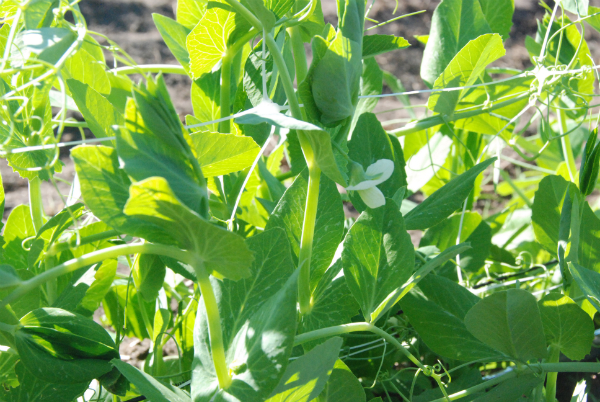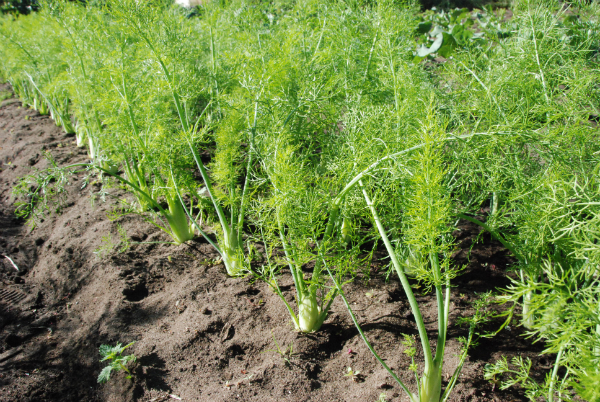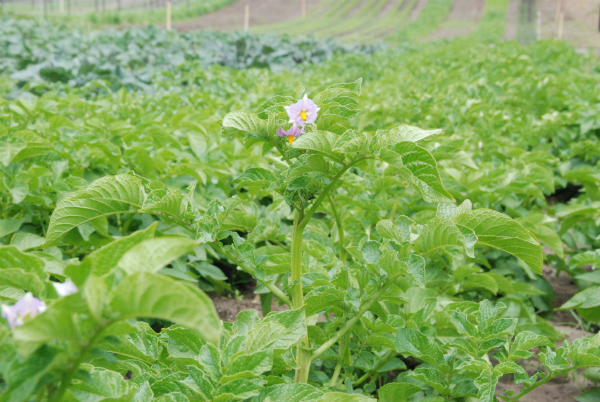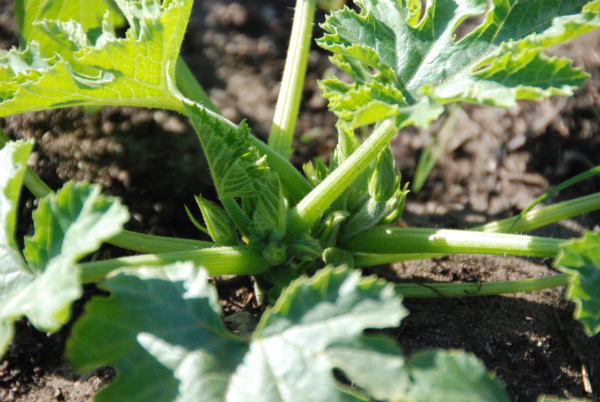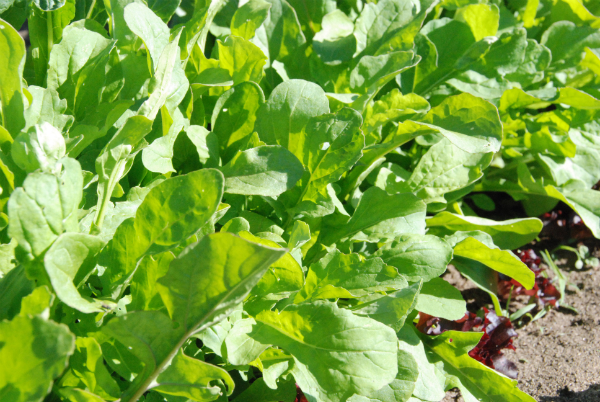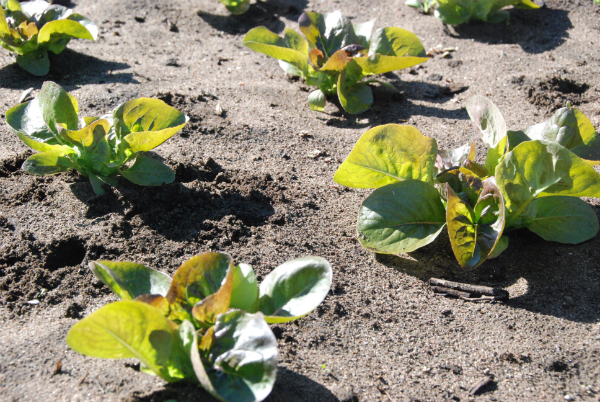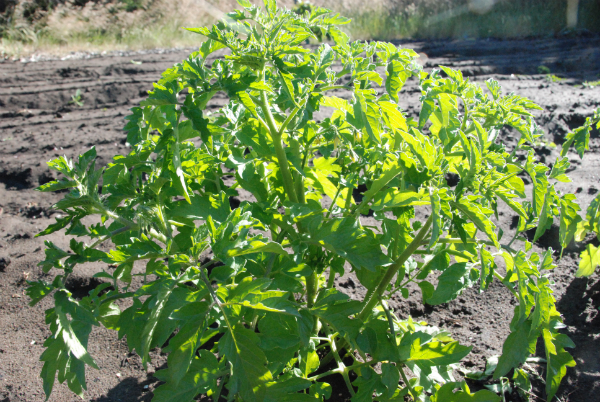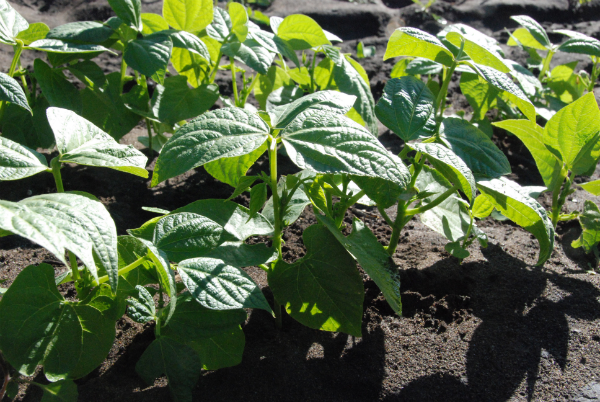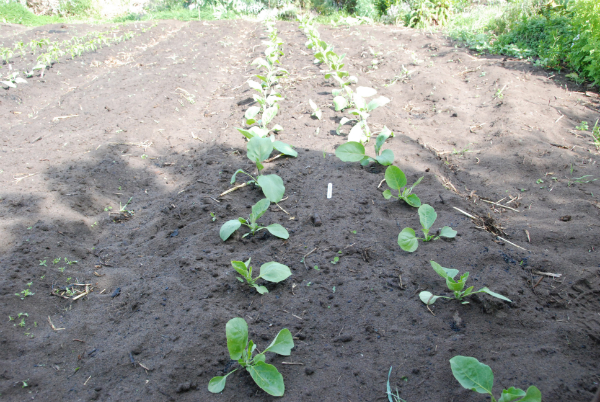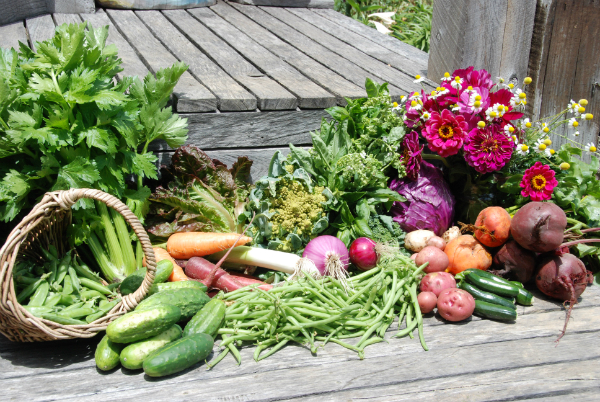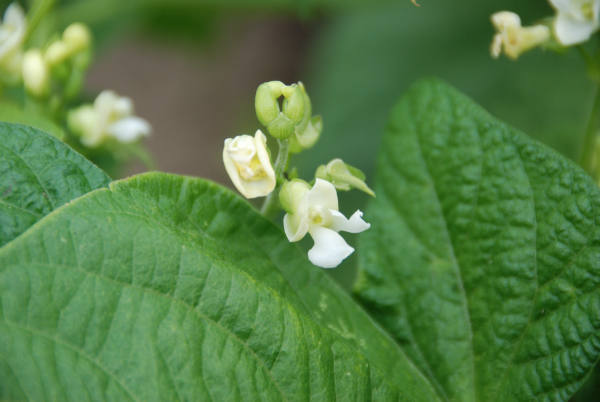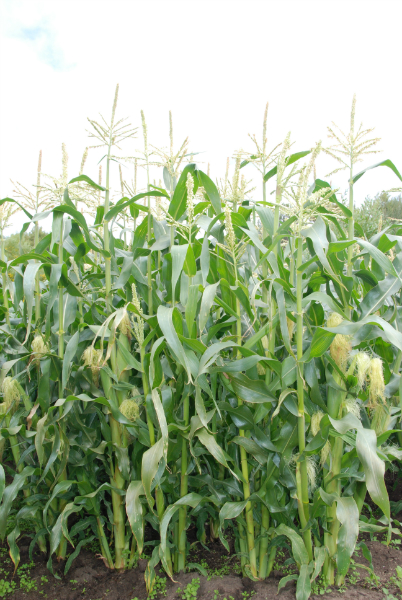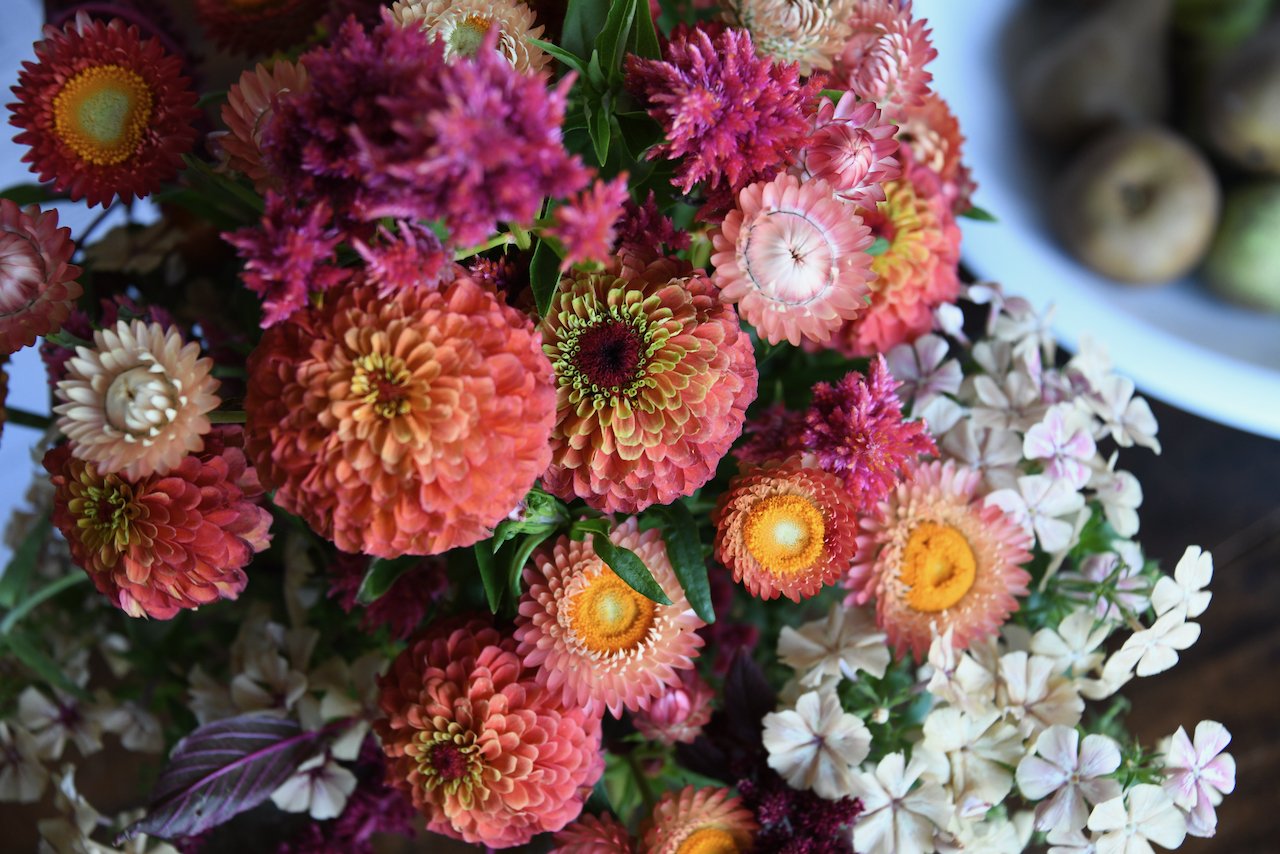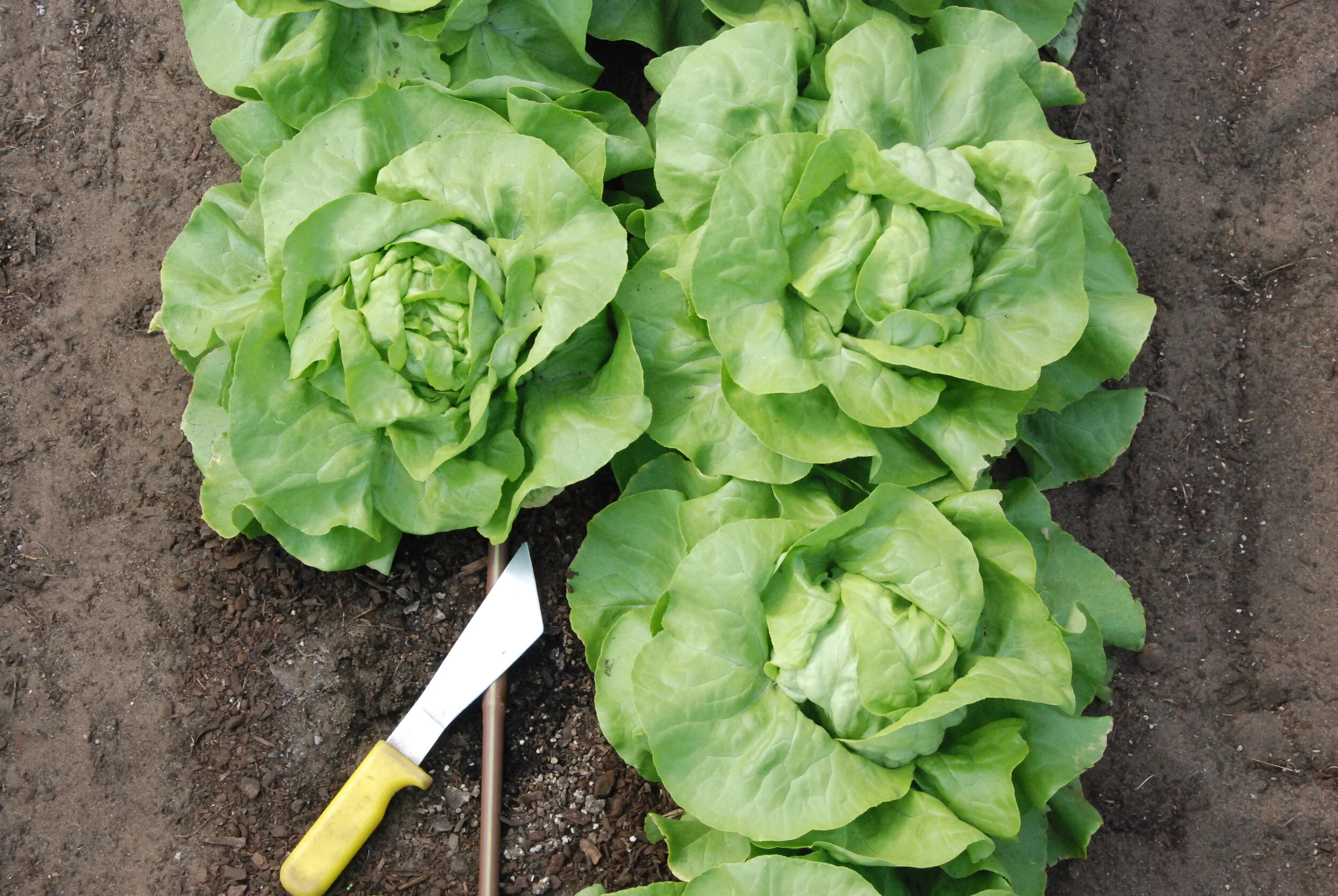 Each week, I walk through our garden and notice which herb calls my attention. You may have noticed that our garden is a "messy" garden - food spills into flowers surounded by fruit trees and at their feet herbs. It is a cacaphony of fragrance, colour, shape, structure, vibration which feeds the body and the soul. This is the classic permaculture design, based on the premise of confusion to predators and drawing on the attributes of companion planting, soil building and fodder for the beneficial insects and animals. As I witnessed the first of the thyme blossoms to open, and saw the bees flock to them, this week, thyme kept calling me.
Each week, I walk through our garden and notice which herb calls my attention. You may have noticed that our garden is a "messy" garden - food spills into flowers surounded by fruit trees and at their feet herbs. It is a cacaphony of fragrance, colour, shape, structure, vibration which feeds the body and the soul. This is the classic permaculture design, based on the premise of confusion to predators and drawing on the attributes of companion planting, soil building and fodder for the beneficial insects and animals. As I witnessed the first of the thyme blossoms to open, and saw the bees flock to them, this week, thyme kept calling me.
In our vegetable mandalas, thyme is planted throughout the outer circle. It is drought resistant and does not require pampering. We grow various varieties and they all spread to form a mat, which keeps other weeds at bay and covers the ground, providing a natural ground cover that cools the soil in summer - another wonderful reason to plant it on the edges of the garden and let it grow.
I have not found any plant or tree that is adversely affected by thyme, and so it is throughout our garden, especially under fruit trees. Bees love thyme. Greek thyme honey is prized all over the world for its wonderful flavour (McIntyre, 214). In this regard, thyme is highly valuable as a garden companion. It blooms in spring, about the time of the fruit trees that require the bees for cross-pollination.
In the vegetable garden too, without bees, we would be hand pollinating zucchini, pumpkins, potatoes, eggplant and melons, to name just a few of the vegetables that require pollination. All through the year, bees are an important member of the garden and should be encouraged to come and linger.
Thyme is also said to help repel cabbage moth when planted near cabbages. I wish I could offer personal results of this claim but alas, it has not dramatically reduced the moths from landing on the cabbage in our garden.
Thyme (thymus vulgaris) comes from the Greek thumus, meaning ‘courage’ and 'to fumigate'. Because of the plant's strengthening and energizing properties, thyme was a symbol of action, bravery and courage. In the age of chivalry, women embroidered a bee hovering over a sprig of thyme on articles to give to their knights. The Greeks burned it on their altars when making sacrifices to the gods, and it was made into incense to drive away infections and insects. The Egyptians used thyme for embalming.
The Romans slept on thyme to cure melancholy while in other traditions thyme has been used to quell nightmares and ensure a pleasant night sleep (Cunningham, 210), as well as convulsions, vertigo and ringing in the ears. Made into soup it cures shyness. Thyme's aroma was inhaled to strengthen the brain and increase longevity (McIntyre, 214).
Thyme is an herb of Venus - soothing, calming, cleansing and gently expulsive. The energy of the herb is heating, the taste pungent and the actions antispasmodic and carminative (Frawley and Lad, 216). A strong infusion of thyme poured into the bath water helps to ensure that all the sorrows and ills of the past are removed from the person (Cunningham, 210).
Thyme makes an excellent remedy, especially for children, for coughs whether they are caused by nerves, anxiety or an infection such as bronchitis, pneumonia or pleurisy. Its relaxant effect on the bronchial tubes relieves asthma and whooping cough, while its expectorant action is useful for shifting phlegm - particularly useful for dry, hacking coughs (McIntyre, 214).
Thyme also relaxes the digestive system, enhances appetite, digestion and stimulates the liver (McIntyre, 57). In South America they say that a good broth resurrects the dead. A wonderful warming stock can be made by gently simmering carrots, onion and celery (with or without chicken necks and bones) with cloves and thyme. The traditional chicken stock has been called "penicillin" for its healing attributes. Adding thyme to that brew, helps to throw off fever and chills, strengthens and invigorates the body, re-ignites the digestive system and relaxes and soothes the body. With medicine that amazing, why look for anything else?

As a culinary herb, thyme is widely used and extremely versatile. Thyme is a main component of Herbes de Provence, a blend that also includes marjoram, rosemary, summer savory, lavender flowers and other dried herbs. Thyme is also typically included in the traditional bouquet garni, a bundle of herbs and aromatics used in making stocks and sauces. In its dried form, thyme is also a component of the basic sachet d'epices, which is also used to add flavour and aroma to stocks. Thyme and lemon thyme are both frequent additions to sauces and salad dressing.
Thyme has the quality of the eagle, soaring highest amongst mountain peaks in the half-light before dawn. It is for those who have suffered much, who feel they have come to the end of their strength and have reached their lowest point. Thyme gives strength and courage to hold on until things improve (Cunningham, 81).
Thyme Healing Bath - from Deb Soule
This is a wonderful bath when you are grieving or feeling deep sadness stirring inside, or when you just need to throw off chills and lethargy. Take 1-2 cups of dried thyme or 2-3 cups of fresh and pour 3-4 quarts of boiling water over the leaves and flowers and steep, covered for fifteen minutes. Strain and add to your warm bathwater and soak for twenty minutes. Do this every night for twenty nights when you are in active stages of grieving.
Syrup of Thyme for cough
225 grams fresh thyme
900 ml spring water
Pour the boiling water over thyme and its flowers (if available) placed in a saucepan, and close the vessel. Let stand in a warm place for twelve hours. Strain and measure liquid. To every pint, add 1kg white sugar, melted and scummed. Stir over low heat until it is well mixed.
Dose: 1 x 5ml spoon every three hours
-Cunningham's Encyclopedia of Magical Herbs by Scott Cunningham, The Yoga of Herbs by Dr David Frawley and Vincent Lad, The Complete Floral Healer by Anne McIntyre, Carrots Love Tomatoes by Louise Riotte, The Roots of Healing by Deb Soule
Our gardening notes are posted before each Wednesday for the week. View this weeks at Biodynamic Gardening Notes for 5 - 11 October.
